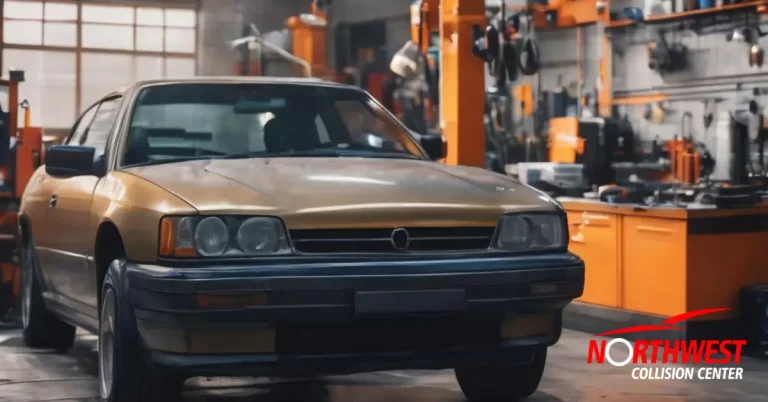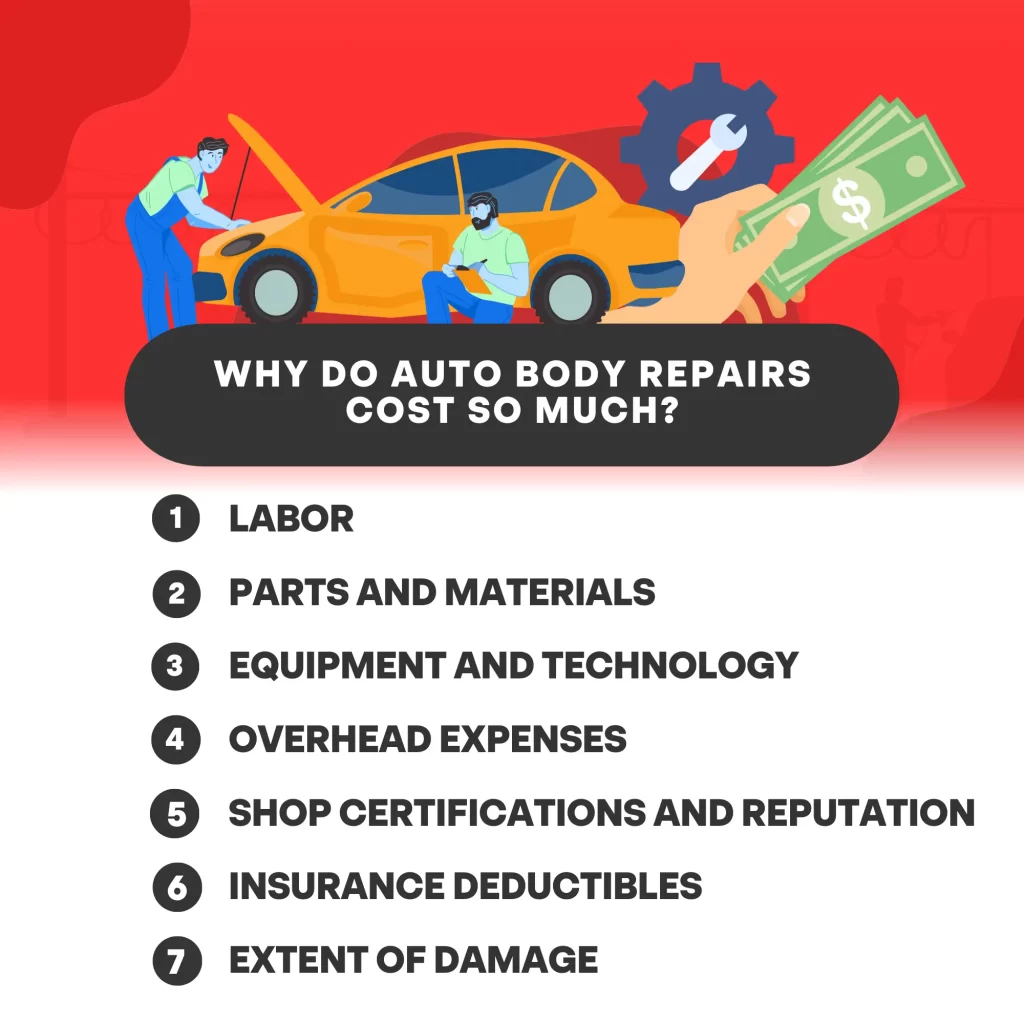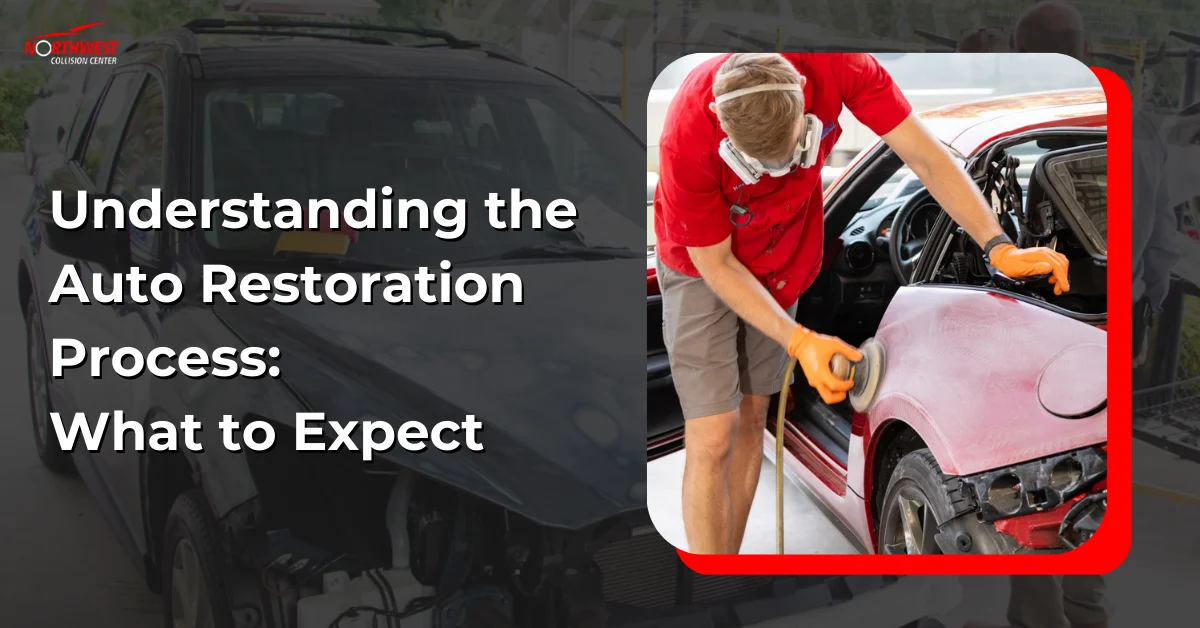When your car gets involved in an accident or sustains damage, the first thing that comes to mind is getting it fixed as soon as possible. But as you search for an auto body repair shop, you’ll realize that quality comes at a price.
While it’s true that auto body repair costs can put a dent in your wallet, the expenses are justified. Skilled technicians, high-quality materials, and advanced equipment are just a few factors contributing to the overall cost.
Why Do Auto Body Repairs Cost So Much?
Repairing a car after an accident is not as simple as applying a fresh coat of paint or hammering out a few dents. It’s a complex process that requires expertise, time, and resources. To better understand why auto body repair costs can be substantial, let’s dig into the key components:
1. Labor
Auto body repair costs are significantly influenced by labor expenses, which can vary depending on the shop’s location and the technicians’ level of expertise. Skilled professionals invest years in honing their craft, and their expertise comes at a price.
Some repairs may require more time and effort, such as frame straightening or intricate panel replacement. The more complex the job, the higher the labor cost you can expect.
2. Parts and Materials
The cost of auto body repair parts and materials can also significantly impact the overall expense. High-quality replacement parts, such as fenders, hoods, and bumpers, can be expensive, especially for luxury or rare vehicles. The type of repair needed will also dictate the materials required.
3. Equipment and Technology
Modern auto body repair shops have advanced technology and tools, such as computerized paint-matching systems and frame-measuring devices. These specialized equipment help provide accurate repairs, but their use comes with higher auto body repair rates. Investing in state-of-the-art machinery and tools is necessary for any auto body repair shop that aims to deliver high-quality work.
4. Overhead Expenses
Like any other business, auto body repair shops have overhead costs that must be factored into their service rates. These expenses include rent, utilities, insurance, and wages for non-technical staff.
While these costs are not directly related to the repair, they are necessary for the shop’s operation. As a result, a portion of the overhead expenses is included in the cost of auto body repair.
5. Shop Certifications and Reputation
Having certifications from car manufacturers and a good reputation in the industry can also affect the auto body repair rates. Shops that carry specific brand certifications often have higher labor rates because they are deemed experts in handling those vehicles.
6. Insurance Deductibles
If the damage to your car is covered by insurance, the cost of auto body repair can be influenced by the deductible amount you chose when purchasing your policy. A higher deductible means you will be responsible for paying more out of pocket for the repairs.
It’s essential to consider your deductible when selecting a repair shop. Some facilities may offer discounted auto body repair rates or work directly with your insurance provider to minimize your expenses.
7. Extent of Damage
The severity of the damage to your vehicle is a significant factor in determining the cost of auto body repair. More extensive damage, such as structural issues or multiple component replacements, will require additional labor and materials, leading to higher expenses.
Are Auto Body Repairs Worth It?
The value of getting auto body repairs depends on the specific circumstances. Here are a few considerations to help you make an informed decision:
1. Cost vs. Vehicle Worth
When evaluating whether to invest in auto body repairs, compare the estimated cost of the repairs to the overall value of your vehicle. If the repair expenses are relatively high and approach or exceed the car’s worth, it may be more financially prudent to consider other options, such as selling the vehicle as is or trading it in.
2. Safety and Functionality
While cosmetic damage may not directly affect the performance of your car, other structural or mechanical issues resulting from the accident can compromise its safety and functionality. In such cases, getting prompt auto body repairs is not just an aesthetic choice but a matter of ensuring your safety on the road.
3. Insurance Coverage
If auto body repair rates are covered by insurance, it’s generally advisable to proceed with the auto body repair work, provided the policy terms allow you to choose your preferred repair shop. Opting for repairs can help restore your vehicle to its pre-accident condition and maximize its value.
4. Emotional Attachment
For many car owners, vehicles hold sentimental value. If your car has a significant emotional attachment or is a rare model, the decision to pursue auto body repairs goes beyond financial considerations. It becomes a personal choice driven by the desire to preserve a cherished possession.
5. Future Plans
Consider your future plans when deciding on auto body repairs. If you intend to keep the vehicle for an extended period, investing in the repairs can make sense, allowing you to enjoy a restored and well-maintained car.
Wrapping It Up
Auto body repair costs encompass various factors, including labor, parts, equipment, and overhead expenses. The severity of the damage and your chosen insurance deductible can also influence the overall expense.
While the cost of auto body repair can be significant, it’s essential to weigh the expenses against the value of your vehicle and the potential safety and functionality risks of not getting the repairs.
Contact Northwest Collision Center for Professional Auto Body Repair Services!
Addressing the damage on your vehicle requires reliable auto body repair in St. Petersburg, FL. Northwest Collision Center offers a wide range of auto body repair services, ensuring we can handle any repair needs. Contact us today to schedule an appointment!











